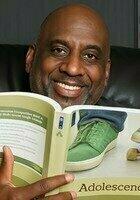Connect with hundreds of tutors like Eric
Who needs tutoring?
FEATURED BY
TUTORS FROM
- YaleUniversity
- PrincetonUniversity
- StanfordUniversity
- CornellUniversity

Eric
About Me
I am a compassionate lifelong learner with years of experience in the areas of training and personnel development, who understands the significance of connecting life experiences to the acceptance of new information. I have a bachelor's degree in finance from DePaul University and over 14 years of management experience. Thus, my ability to identify problem area and help students to relate the subject matter to something that they already have an awareness of, is the skill that makes me a great tutor. I'm currently in the midst of a career change working toward a master's degree in secondary education, in the area of mathematics, so that I can actively join the fight to help educate today's youth. I have a passion for teaching math in a way that can be understood in laymen terms so that the beauty of the subject and its relevance to all facets of life can be appreciated. I have worked with high risk elementary students who were performing well below grade level and helped them to meet and/or exceed the required standards by year's end. My teaching philosophy utilizes the backward design method where we begin with the ideal result then we review all of the prerequisite knowledge, skills, and techniques that will be need to solve the problem. With this method the teacher serves as a facilitator who guides the student through the process of using the critical thinking necessary for understanding the desired result. Thus the focus if for the student to gain knowledge of what they are doing and why, not just the answer to a question. In addition to my love for teaching I have an affinity for athletics and a passion for photography, therefore I truly appreciate the hard work and dedication that is required to fulfill a challenging goal as well as the beauty of capturing the moment of triumph. So if you need a tutor who can properly identify a problem area, communicate it in a manner that you can understand, relate it to something that you can identify with, then direct you through the process of obtaining the knowledge and skills necessary for comprehending the solution, I'm your man.
Education & Certifications
Connect with a tutor like Eric
Tutors with Similar Experience


